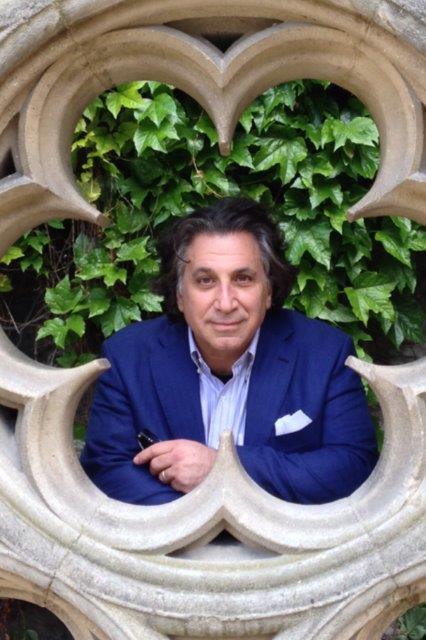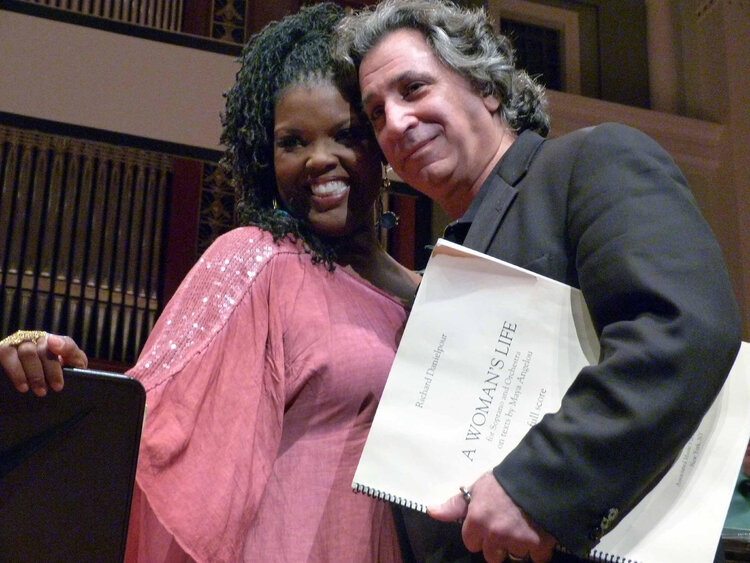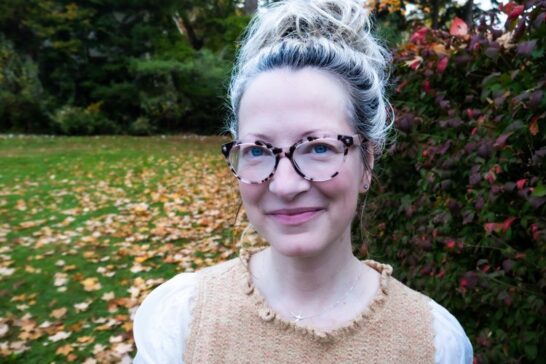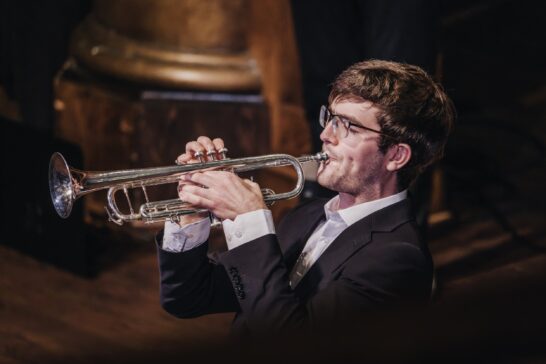Q&A with Composer Richard Danielpour (Part I)

The Curtis Institute of Music will honor distinguished composition faculty member, Richard Danielpour, on Wednesday, April 19, 2023, at 8:00 p.m. with a concert celebrating the artistry, enduring impact, and 25th anniversary of the GRAMMY Award-winning composer’s appointment to the school’s renowned composition faculty. Learn more about “Music of Richard Danielpour,” featuring the world premiere of Four Portraits, with acclaimed pianist Amy Yang (’06).
In part one of this Q&A series, the highly sought-after American composer discusses how he came to Curtis and shares his thoughts on the three works featured in this upcoming Curtis Presents concert at Field Concert Hall.
On April 19, the Curtis Institute of Music will present a concert in celebration of your 25 years here as part of the school’s renowned composition faculty. How did it all begin?
 I remember when Gary Graffman invited me to teach at Curtis a few days before Christmas 1996. I’d been asked to give a master class through the invitation of Ned Rorem, who was still on the faculty then. When I joined, there were only two of us, and I did the master class, not knowing that it was something akin to an audition. Gary invited me to his house and said, “I make my own vodka. Would you like to try some? I’ve got strawberry vodka and pepper vodka.” I said, well, let’s try the strawberry first. After three shots, I needed a railing to get up and hold on to.
I remember when Gary Graffman invited me to teach at Curtis a few days before Christmas 1996. I’d been asked to give a master class through the invitation of Ned Rorem, who was still on the faculty then. When I joined, there were only two of us, and I did the master class, not knowing that it was something akin to an audition. Gary invited me to his house and said, “I make my own vodka. Would you like to try some? I’ve got strawberry vodka and pepper vodka.” I said, well, let’s try the strawberry first. After three shots, I needed a railing to get up and hold on to.
Then we moved to his piano salon in the Osborne, a very famous building that’s diagonal to Carnegie Hall, and he said, “I’m inviting you to join the faculty of the Curtis Institute. It’s the greatest job you’ll ever have because the philosophy behind Curtis is the very thing that I know you already believe in.” He was saying that there is a tradition amongst musicians in which we don’t hoard our knowledge. We share it with compassion and with the understanding that we are looking at the future generations who will then carry on this torch, the tradition of creating concert music and opera.
I asked Gary what’s the secret to its success, and he said that nobody on the faculty actually needs the job. Most of us make our principal living doing other things. So, in a way, this is a kind of Mitzvah. We’re doing something because we love to do it, not because it’s about being lucrative.
I remember another Curtis alumni—my last composition teacher, Mr. Bernstein—just before I started having lessons with him. It was 1984, and he gave this unbelievable performance at Carnegie with the Vienna Phil of Mozart’s 40th and Mahler 4th. I was sitting in the dress circle, the student seats, and was still in the middle of doing my doctorate at Juilliard. I went backstage, and there he sat in his kimono with his silver goblet of scotch, smoking a cigarette. I said, how do you do it? He pretended he was conducting, and he beat four in the air. He said, “You mean this?” I said, no, how do you do it? How do you make this magic happen? And he said, “In the end, you know, it’s all about love.”
As a hungry young man who wanted to know and understand more, I asked if he meant the love he and the musicians have for the music or one another. He said, “Sort of. You just gotta stick around for the next twenty-five years, and you’ll eventually get the idea.” Now I understand what he was saying. It really is all about love in the end. Curtis is wonderful because it lives in the present at the same time as being fully aware of its past. And in that way, it creates a sense of lineage and legacy. I understood this immediately when I became a part of the faculty in the fall of 1997. As time passed, I learned more details about how rich the legacy is. I feel very honored to be here, and it’s a privilege to be a part of this tradition.
The concert will feature three of the six works, including a new world premiere, that Curtis has commissioned from you since you joined the faculty in 1997. Can you talk about Canti Della Natura and the String Quartet (“A Shattered Vessel”) and why their inclusion in this concert is particularly poignant to you?

About Canti Della Natura:
This is a major 35-minute song cycle written for my dear friend Nicola Bulgeri’s 80th birthday. A mutual friend of ours, Ken Lipper, commissioned it with Curtis. I wanted to have vocal work included on this program because I’ve written so much for the voice, and I’ve been blessed to write for so many great singers. If someone were to ask me what’s been one of the greatest thrills of my career, it’s being able to write for people like Frederica Van Stade, Jessye Norman, Susan Graham, Isabel Leonard, Tom Hampson, Angela Brown (see accompanying photo), Dawn Upshaw, and Stephanie Blythe. In a way, they taught me how to be the vocal and opera composer that I am today.
These poems were written by Antonio Vivaldi to accompany his Four Seasons Concerto Grosso, but nobody knew about the sonnets, and they’re beautiful. They use nature, as many poets and artists have done, as a metaphor for life, death, and rebirth. This same cycle of life is evident in the school itself, how people come and go, but the flame remains.
About String Quintet (“A Shattered Vessel”):
“A Shattered Vessel” was commissioned by Ida Kavafian’s summer festival, Angel Fire. I’ve always had a special place in my heart for Ida. She was one of the first great musicians I had met who recorded my music back in 1991. I finished it at the beginning of 2019, and Canti Della Natura, interestingly, at the end of 2019. In some way, shape, or form, I think I was writing this about the pandemic to come without realizing it, much the same way that I wrote An American Requiem and finished it days before 9.11. It’s an odd sort of thing that happens once in a while with composers.
Watch a stirring performance of “A Shattered Vessel” with Ida Kavafian (violin), Lun Li (violin), Cara Pogossian (viola), Peter Wiley (cello), and Francis Carr (cello).
How did the idea of Four Portraits for solo piano come about?
At the end of January 2022, I met a very accomplished actress, and she’s been in over fifty films, has done hundreds of voiceovers, and has published eight books. She’s the closest thing I’ve ever known to a real twin flame in my life. It was an unexpected gift from above. One of the things we both have in common is that we had near-death experiences where we were literally gone for a minute. In a very short time, it was clear that we were so well-matched on every level.
I wrote these four portraits of her life at different stages and dedicated them to her. The first one was written in one day, the day after we met. The others came after she and I got to know each other, and she shared her life with me. If you look at them in the universal sense, they are images of life in its stages, portraits of a person of a different age at a different time.
Originally, I was going to write a group of songs. In some ways, they’re similar to Mendelssohn, and at times they almost remind me of Robert Schuman, who also wrote pieces like this. They’re unusually streamlined, not very complex on the surface, or technically difficult to play, but quite detailed and difficult because they’re so subtle and nuanced. This was harder than writing “A Shattered Vessel,” which is three times the length. Just because something is short doesn’t necessarily make it easy.
I write very fast, but I finish slowly. The notes to a piece are down within a week, but I will stay with those pages for weeks and months until I know they’re right. That’s the same with somebody like Puccini. He wrote La bohème in six months, but it took him three years to complete the opera. That’s what writing is; that’s what composing is. It’s not just putting the notes on paper, it’s getting them right.
Visit Richard Danielpour‘s official website HERE.
CURTIS PRESENTS: Music of Richard Danielpour
Wednesday, April 19, 2023, at 8 p.m.
Field Concert Hall, Curtis Institute of Music, 1726 Locust Street, Philadelphia
Tickets for Music of Richard Danielpour ($24) are available at Curtis.edu. Seating is general admission.
Q&A by Ryan Scott Lathan. Part two of this interview will appear in Curtis’s newsfeed on Monday, April 17, 2023.
Photos of Richard Danielpour courtesy of the artist. Soprano Angela Brown and composer Richard Danielpour at a Nashville dress rehearsal for “A Woman’s Life,” a song cycle composed by Danielpour on the poems of Dr. Maya Angelou.


